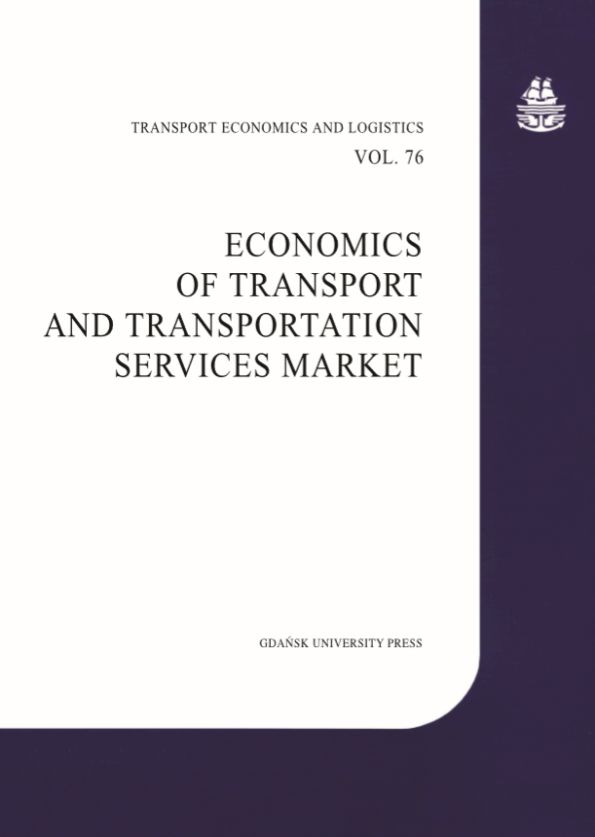Economic effectiveness of urban railway infrastructure investments in the light of globalization and regional development. Study on example of Pomeranian Metropolitan Railway construction
DOI:
https://doi.org/10.26881/etil.2018.76.06Keywords:
globalization, regional development, feasibility study, Pomeranian Metropolitan Railway, Wider Economic ImpactAbstract
The myth of a borderless world pillars of open markets – the USA and the UK – are wobbling, and China is positioning itself as globalization staunchest defender. But is a mass retreat from globalization really the right approach for companies in these uncertain times? Or short of packing up and returning home, should they focus on localization – that is producing or even innovating where they sell-as the strategy of choice? Recall that as recently as a decade ago, business leaders and politicians believed that the world and that global companies, unconstrained by countries borders, would soon dominate the world economy. Today’s turmoil calls for a more subtle reworking of multinationals’ strategies organizational structures, and approaches to societal engagement. Poland has already been a beneficent of EU funds. Actually Polish internal indebtedness is increasing and Poland will not be able to use EU funds in the future.
The authors would like to present the Polish issue of planning investments financed by EU funds, e.g. the project of the Pomeranian Metropolitan Railway. Construction of this railroad is the first successful project in Poland to build a new railroad since the transformation of the state system in 1989. The project was financed by the European Regional Development Fund. The decision to build the line and award the grant was made on the basis of a feasibility study. A key element of this document was the CBA analysis, which was carried out on the basis of the Blue Book for railway transport.
A narrow look at the economic aspects and the earlier underestimated costs of the investment caused that the investment is unfinished. The question should be asked is whether use of another method of economic analysis would help to complete this investment without the need for over a dozen years of staging investment expenditures? Difficulties with the economic efficiency account are similar to the barriers to the development of globalization.
Downloads
References
Blue Book (2015), http://eeas.europa.eu/archives/delegations/indonesia/documents/eu_indonesia/blue_book/bb2015_en.pdf, pp. 12, 80.
Chang, Z. (2017), Urban rail transport PPP’s lessons from East Asian cities. Transportation Research, 105, pp. 106–107, 113–114.
Charlemagne. More than yuan Europe (2017), The Economist, 02.12.2017.
Chinese finance stormy weather (2017), The Economist, 2-8.12.2017.
Choi, C.C., Loh, N. (2013), Transport policies and patterns a comparison of five Asia cities Journeys. Communist Party congress: How China picks its leaders. BBC News, 05.10.2017. Available from http://www.bbc.com/news/world-asia-china-41250273 [Accessed 15 October 2017].
Disaster management (2017), The Economist, 09.12.2017.
Domański, H. (2004), O ruchliwości społecznej w Polsce. Henryk Domański & Wydawnictwo IFiS PAN, p. 136.
Drucker, P. (1993), Managing in Turbulent Times, New York, Harper & Row.
Feasibility Study of the Pomeranian Metropolitan Railway project. (2012). Available from http:// www.pkm-sa.pl/glowna/wp-content/uploads/2010/09/DSC-Aktualizacja-Studium-Wykonalno%C5%9Bci-06.03.2012.pdf [Accessed 10 November 2017], pp. 229–230.
Friedman, M. (1978), An interview with Milton Friedman. Human Event.
George, H. (1879), Progress and Poverty: An Inquiry into the Cause of Industrially Depressions and of Increase of Want with Increase of Wealth: The Remedy. Doubleday Garden City New York.
https://www.bloomberg.com/news/articles/2017-07-20/panda-diplomacy-masks-doubts-in-europe-over-china-s-sincerity [Accessed 16.12.2017].
IMF warns of ‘vulnerabilities’ that could derail global recovery (2017), Financial Times, 11.10.2017.
International investors chase the red dragon (2017), Financial Times, 11.12.2017.
Kołodko, G. (2008), Wędrujący Świat, Wyd. Prószyński i Spółka, Warszawa, p. 155.
Miecznikowski, S. (2017), Limits nad risk of developing transport infrastructure in Poland,. Journal of European Economy, 16.
National Railway Program up to 2023 (Krajowy Program Kolejowy do 2023 roku). (2016). Available from http://mib.bip.gov.pl/fobjects/download/194387 [Accessed 15 November 2017].
Parry, L., Small, K. (2009), Should urban transit subsidies be reduced?, American Economy Review, 62 (4), pp. 604–691.
Rachman, G. (2017), China’s bold challenge to the west, Financial Times, 24.10.2017, p. 9.
Refinance push China’s ethical bond issuance takes it to top spot in world green paper league (2017), Financial Times, 11.12.2017.
Ricardo, D. (1821) On the principles of political economy and taxation, Third edition, John Murray, London.
Stiglitz, I.E. (1977) The theory of local public goods. In Feldstein 38 (46). The economics of Public Services. Macmillan Press London.
Sun, L., Huang, Y., Chen, Y., Yao, L., Vulnerability assessment of urban rail transit based on multi-static weighted method in Beijing, China, Transportation Research. 108, p. 12.
Wang, H., Wu, J. (2018), Global investors can ill afford to ignore Chinese equities, Financial Times, 15.01.2018, p. 9.
Wobbling into the WTO (2017), The Economist, 02.12.2017.

 Academic Scientific Journals
Academic Scientific Journals



